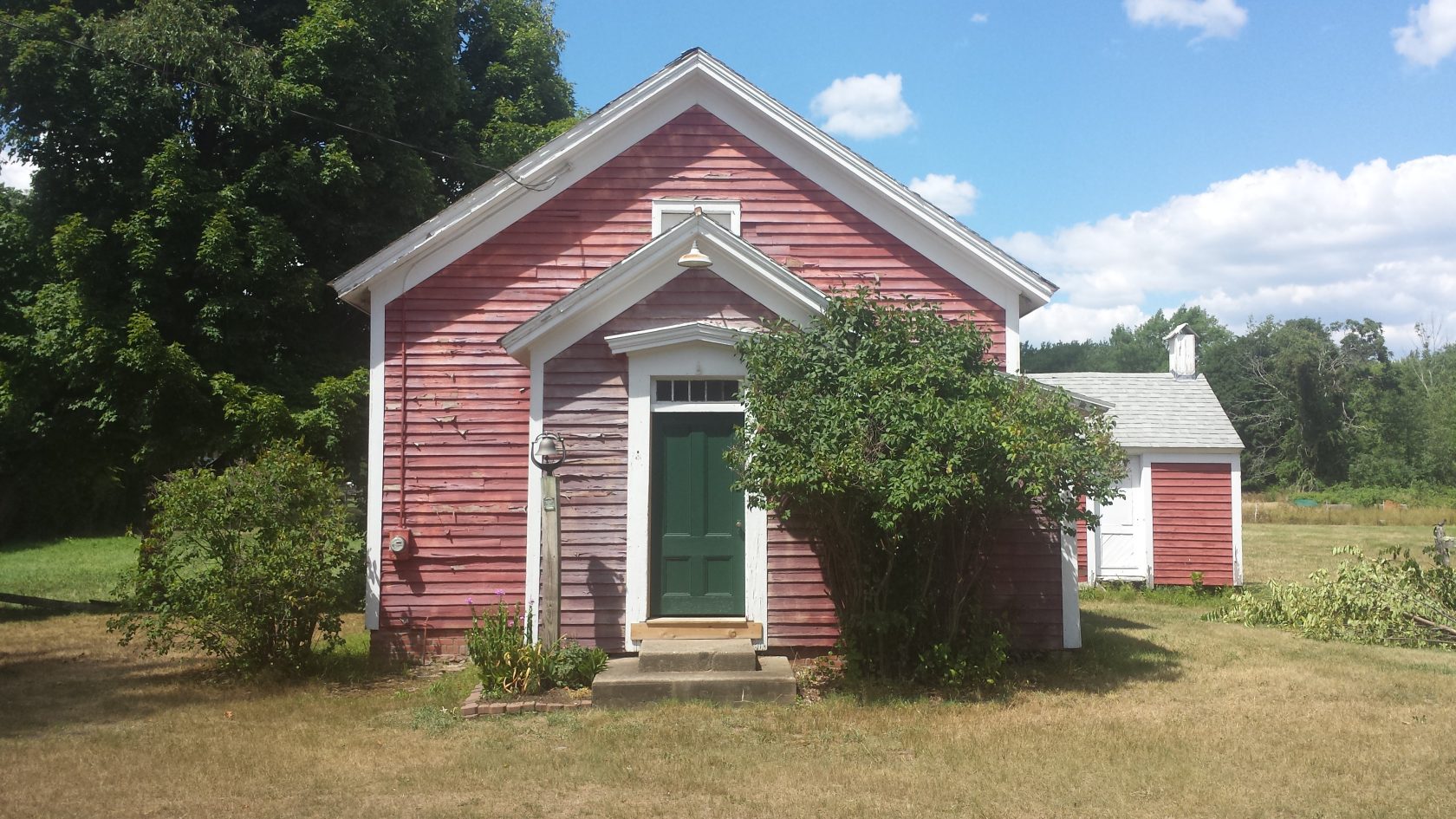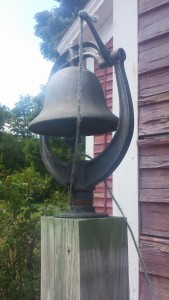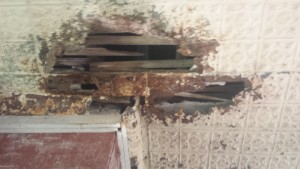WESTFIELD–A Civil War-era building in the city is getting a heavy makeover.
The West Farms Schoolhouse, a one-room schoolhouse located in the Wyben section of Westfield, is receiving a lot of work and restoration from the Westfield Historical Commission’s Walter Fogg, as he tries to turn the dilapidated building into a place where people can learn about life in Westfield in the late 1800s.
And Fogg is hoping for assistance from the public in getting the building back to its original condition.
“There’s about $63,950 we still need total,” Fogg said about the cost of work. “In the scope of historical renovations though, that’s peanuts.
“If we can bring more money from grants and fundraising and get volunteers to help, we can significantly lower that cost.”
Currently, the schoolhouse has a new foundation that was done in 2014, slate for the chalkboards that was donated by Storrowtown Village and a potbelly stove that was renovated by Good Time Stove Company in Goshen. However, a lot of renovations still need to be done for it to be complete.
Among the work that still needs doing: the tin ceiling and wooden floors need to be repaired, the chimney needs to be rebuilt and the outhouse needs to be torn apart and reassembled.
Fogg, who is 72, has been doing the work alongside Tim Wohlhueter of Squaw Hollow Restoration, of Wales, Massachusetts. Wohlhueter, Fogg said, specializes in 17th to 19th century house and barn restoration, which makes him qualified for the work.
Others who have contributed their efforts include Dick Patterson and Bob Allen of Wyben, as well as Scott Duncan of Southampton.
The schoolhouse was originally erected in 1862, replacing a one-room schoolhouse that was destroyed by a fire the year before. It served the community as the educational boon for children until 1939, when the city fully transitioned to larger 12- to 24-room schools.
The schoolhouse has its connection to the city as more than just an old school, though. Fogg said that it was chosen as the teaching school for then-Westfield State College for those studying to become teachers. The teachers-to-be would come to the school and work alongside the residential teacher, learning the craft and helping with students.
Fogg hopes that this connection helps spark more interest and activity from the community and the university.
If you would like to help, email Fogg at [email protected] for more information.




